Introduction
Introduction
Department of Electronics Engineering has healthy administration, robust infrastructure and enthusiastic team of faculty, non-teaching technical and supportive staff. Highly meritorious students get admitted to this programme.
In addition to essential electronic subjects, software based subjects are also included in the curriculum which makes this course suitable for electronics and many IT industries.
Department offers one under graduate course – B. Tech (Electronics Engineering.) and one post graduate course - M.Tech (Electronics and Communication Engineering.). The department outfits the increasing needs of technical wisdom in all associated areas of electronics engineering such as Microelectronics, Communication, Control and Instrumentation, Power electronics, Microcontrollers, Signal and Image Processing, VLSI etc. There are around 12 well equipped laboratories which includes a simulator lab exclusively meant for the research. This lab has many research equipment such as Mentor graphics, spectrum analyzer, digital storage oscilloscopes, high frequency counter, antenna trainer kit, etc. These laboratories are monitored and maintained by skilled and experienced staff. Department has signed MOU with various companies
Department has an independent library with 1500 text books and Journals with open access for students.
Department frequently organizes guest lectures by leading industrialist and technologist’s to keep the students in tune with the latest technological developments. Innovation, Paper Presentation Contest and Project Competitions are held to bring out the latest technical and organizational skills of the students. Industrial trainings are regularly arranged to expose the students to the industrial environment.
| Department | Electronics |
|---|---|
| Dept Location | Main Building, 2nd floor |
| Established year | 1983 |
| Head of Department | Prof.Dr.Dhanure S R (Mudda) |
| Phone no. | 02382-221255 |
| Email Id | ssmudda@msbecl.ac.in |
| UG Prog Name | B. Tech in Electronics and Telecommunication Engineering |
| UG Prog Intake | 60 |
| PG Prog Name | M. Tech. in Electronics & Communication Engineering |
| PG prog Intake | 18 |
| Reasearch Prog | - |
| Total Classroom | 3 |
| Total Labs | 11 |
| Faculty Student ratio | 1:20 |
| Total Prof | 0 |
| Total Associate Prof | 2 |
| Total Assistant Prof | 9 |
| Total Faculty | 11 |
| Supporting Tech Staff | 4 |
| Supporting Non Tech. Staff | 2 |
Programme Outcomes
A. Program Educational Objectives (PEOs)
Graduates will able to –
- To equip graduates with a strong foundation in engineering sciences and Electronics Engineering fundamentals to become effective collaborators, researchers and real-time problem solver with technical competencies.
- Perceive the limitation and impact of engineering solutions in social, legal, environmental, economical and multidisciplinary contexts.
- Excel in Industry/technical profession, higher studies, and entrepreneurship exhibiting global competitiveness.
B. Program Outcomes
Engineering Graduate will be able to –
- Engineering knowledge: Apply the knowledge of mathematics, science, engineering fundamentals, and an engineering specialization to the solution of complex engineering problems.
- Problem analysis: Identify, formulate, review research literature, and analyze complex engineering problems reaching substantiated conclusions using first principles of mathematics, natural sciences, and engineering sciences.
- Design/development of solutions: Design solutions for complex engineering problems and design system components or processes that meet the specified needs with appropriateconsideration for the public health and safety, and the cultural, societal, and environmental considerations.
- Conduct investigations of complex problems: Use research-based knowledge and research methods including design of experiments, analysis and interpretation of data, and synthesis of the information to provide valid conclusions.
- Modern tool usage: Create, select, and apply appropriate techniques, resources, and modern engineering and IT tools including prediction and modeling to complex engineering activities with an understanding of the limitations.
- The engineer and society: Apply reasoning informed by the contextual knowledge to assess societal, health, safety, legal and cultural issues and the consequent responsibilities relevant to the professional engineering practice.
- Environment and sustainability: Understand the impact of the professional engineering solutions in societal and environmental contexts, and demonstrate the knowledge of, and need for sustainable development.
- Ethics: Apply ethical principles and commit to professional ethics and responsibilities and norms of the engineering practice.
- Individual and team work: Function effectively as an individual, and as a member or leader in diverse teams, and in multidisciplinary settings.
- Communication: Communicate effectively on complex engineering activities with the engineering community and with society at large, such as, being able to comprehend and write effective reports and design documentation, make effective presentations, and give and receive clear instructions.
- Project management and finance: Demonstrate knowledge and understanding of the engineering and management principles and apply these to one’s own work, as a member and leader in a team, to manage projects and in multidisciplinary environments.
- Life-long learning: Recognize the need for, and have the preparation and ability to engage in independent and life-long learning in the broadest context of technological change.
C. Program Specific Outcomes (PSOs)
- Apply basic knowledge related to Electronic Circuits, Embedded & wireless communication Systems and Signal Processing to solve engineering/ societal problems in the field of Electronics Engineering.
- Recognize and adapt to technical developments and to engage in lifelong learning and develop consciousness for professional, social, legal and ethical responsibilities.
- Excellent adaptability to the changing industrial and real world requirements.
Career opportunities
Career Pathways after B.Tech graduation in Electronics Engineering
- How to become a quality Electronics Engineer?
Learning from a top engineering college and practical exposure fetch you a good salary package. Leading companies hire from top B.Tech. colleges in India and offers handsome salary with excellent perks. One needs to work on the following-
- Strong Foundation
- Engineering Degree from a leading college
- Gain Experience and Exposure
- Engineering License and Certificates
- Boost Your Resume
Responsibilities of Electronics Engineer
- Electronics engineers have to use a blend of concepts and techniques for designing, production, installing, and maintaining the relative systems.
- They also have to design and manage equipment and evaluate its performance.
- Engineers in this field need to write specifications & draw theoretical designs to create interfaces.
- Electronic engineers have to plan, implement and execute projects.
- They have to plan budgets for different projects as well.
- Technical report writing is also a major part of the work.
- Engineers also have to test and evaluate the workings of the systems, equipment, devices, and gadgets to figure out the discrepancies and suggest relevant solutions.
- A B.Tech Electronics Engineering graduate designs and develops tools like multiplexes, routers, electronic switch systems, copper telephones, and fiber optic mechanisms. They work on information exchange channels such as coaxial cable, optical fiber, and free space.
- An Electronics Engineering professional creates printed circuit boards, integrated circuits, and transistors. These are crucial elements for digital devices, televisions, music systems, etc.
- The products and services developed by Electronics Engineering graduates are applied to houses, industries and almost everywhere.
- Electronics engineering graduates work mostly with software interfaces and electronic devices. They conceptualize, design, test, produce and monitor projects.
The different streams under B. Tech (Engineering) have always been in demand and even today are the most sought-after ones. Being a core technical academic program, B. Tech helps in assimilating the constructive concepts of engineering. Out of a list of B.Tech specializations being offered by the Best Engineering Colleges in India, Electronics Engineering is among the coveted ones.
Electronics Engineering is a vertical of engineering which deals with research, design, development, and testing of electronic devices or equipment which support electrical systems.
Electronics Engineering is a thriving sector with multiple job opportunities across industries. With the advancements in technology and the introduction of new gadgets, the Electronics Engineering degree holders can look forward to a deluge of career avenues, that too in the best companies.
The Electronics Engineering curriculum includes programming languages such as C, C++, MATLAB, etc., to focus on electronics systems applications. Python Programming: Python is widely used for web development, data analysis, and artificial intelligence. Learning Python equips Electronics Engineering graduates with a versatile coding skill.
Assuming that there are innumerable roles for B.Tech Electronics engineering graduates, some of the options are more remunerative than others. These include the following:-
- Service Engineer
- Network Planning Engineer
- Communication Engineer
- Telecom Engineer
- R&D Software Engineer
- Desktop Support Engineer
- Software Analyst
- Analog applications Engineer
- Technical Director
- Electronic Design Engineer
- Besides the aforementioned, the graduates can also explore jobs in government colleges and universities where they can take up teaching or research activities. After one has concluded this degree, he or she can either go for an M.Tech or an MBA degree after B.Tech. This will further increase the employment quotient.
Scope of Job
Students have broadly three options after B.Tech in Electronics Engineering
- Job in the Government or Private Sector
- Higher Study, Research, and Certifications
- Start-up and business Universities like Bennett University offer ample opportunities to begin your startup journey.
- Major Central and State Governments Employers for Electronics Engineering Graduates
After completing Electronics Engineering, one can pursue various career options such as academics, research, circuit designing, industry, satellite and transmission etc. This field is highly creative with exciting opportunities in the field of telecom and electronic communication systems. Electronics Engineering is central to robotics, encompassing design elements such as circuit creation, communication systems, and signal processing. The products and services developed by Electronics Engineering graduates are applied to houses, industries and almost everywhere. Electronics engineering graduates work mostly with software interfaces and electronic devices. They conceptualize, design, test, produce and monitor projects.
Electronics Engineering profession offer a diverse range of potential career paths. They can work in and advance to supervisory in which they lead a team of engineers and technicians fields including
- Telecommunications,
- Electronics manufacturing,
- Semiconductor industry,
- Wireless communication,
- Signal processing,
- Control systems,
- Power systems, and automation
- Embedded systems.
- Electronics, automotive,
- IT,
- Gaming,
- Telecoms,
- Manufacturing,
- Power,
- Transport,
- Utilities and
- Construction industries.
Following industries hire B.Tech Electronics Engineering professionals for different job positions.
- Aviation and Avionics
- Consumer Electronics
- Manufacturing and Distribution Industry
- Telecommunication and Communication Sector
- Electricity Plant
- Offshore Industries
- Analytical Equipment Manufacturing
- Computer Applications
- Television and Radio Industries
- Health Care Industry
There are a multitude of companies that operate under this branch of engineering and of late have shown humongous growth. Some of the companies which fall in the same category are listed as under:
- Havells India Ltd
- Bajaj Electronics
- Philips Electronics India
- Bosch in India
- Dell
- Intel
- TCS
- Schneider Electric
- Reliance
- Cisco
- Havells
- 3M India
- Reliance
- Bajaj
- Bosch
- Philips
- Central & State Government Sectors in which graduates can work:
From government departments to educational institutes, candidates have a lot of spheres to work in as Technical Assistant, Technical Officer, and Scientific Assistant which include:
- All India Radio
- Indian Telephone Industries
- Civil Aviation Department
- National Physical Laboratory
- Post and Telegraph Department
- Bharat Electronics Limited
- MTNL
- National Physical Laboratories
- CRPF
- ISRO
- Civil Aviation Department
- Defense Departments such bas DRDO
- ONGC, SAIL, and other PSUs
- PSU offices in different states
- Related Departments at State Governments
- BHEL
- ECIL
The future of electronic engineering is bright, thanks to innovations like AI integration. The future of healthcare technology, energy efficiency, and smart devices will be driven by electronic engineers. The Future scope of Electronics Engineer in India and abroad is voluminous, attracting a huge number of candidates.
The latest data by IBEF corroborates that about 27% of the total factories account for those working in the area of engineering. This industry is further projected to reach a mark of US$
115.17 billion by 2025. This brings us to a conclusion that the coming times can prove beneficial to the graduates who have B.Tech. degree in Electronics Engineering.
Faculty
(Permanent:08 Adhoc/Other:03 Total:11)
| Name | Prof. Dr. MUDDA S S Profile | |
| Designation | Asst. Prof. (HOD) | |
| Qualification | M.TECH (Comm.) PhD. | |
| Teaching Experience | 21 Years | |
| Industry Experience | - | |
| Email Address | rachu1982@gmail.com | |
| Area of Specialization | Communication System, Digital Design and Control System. |
| Name | Prof. Dr. HATTE Jyoti S (Patil) Profile | |
| Designation | Asst. Prof. (Principal) | |
| Qualification | M.TECH (Comm. System), Ph.D | |
| Teaching Experience | 23 Years | |
| Industry Experience | - | |
| Email Address | jyotihatte.patil@gmail.com | |
| Area of Specialization | Communication System, Embedded Systems, Probability Theory |
| Name | Prof. Bale V.S. Profile | |
| Designation | Asso. Prof. (Vice-Principal) | |
| Qualification | ME (E & TC) | |
| Teaching Experience | 33 Years | |
| Industry Experience | - | |
| Email Address | veerbale68@gmail.com | |
| Area of Specialization | Signal Processing. |
| Name | Dr. HALHALLI S R Profile | |
| Designation | Asso. Prof. | |
| Qualification | Ph.D. | |
| Teaching Experience | 35 Years | |
| Industry Experience | - | |
| Email Address | srhalhalli@gmail.com | |
| Area of Specialization |
Wireless and Mobile Communication, Wireless sensor Network, Mobile Ad-hoc Networks |
| Name | Prof. SHAH V K Profile | |
| Designation | Asso. Prof. | |
| Qualification | M.TECH (E & TC) | |
| Teaching Experience | 33 Years | |
| Industry Experience | - | |
| Email Address | vks_007@rediffmail.com | |
| Area of Specialization | Electronics Devices and Electromagnetics |
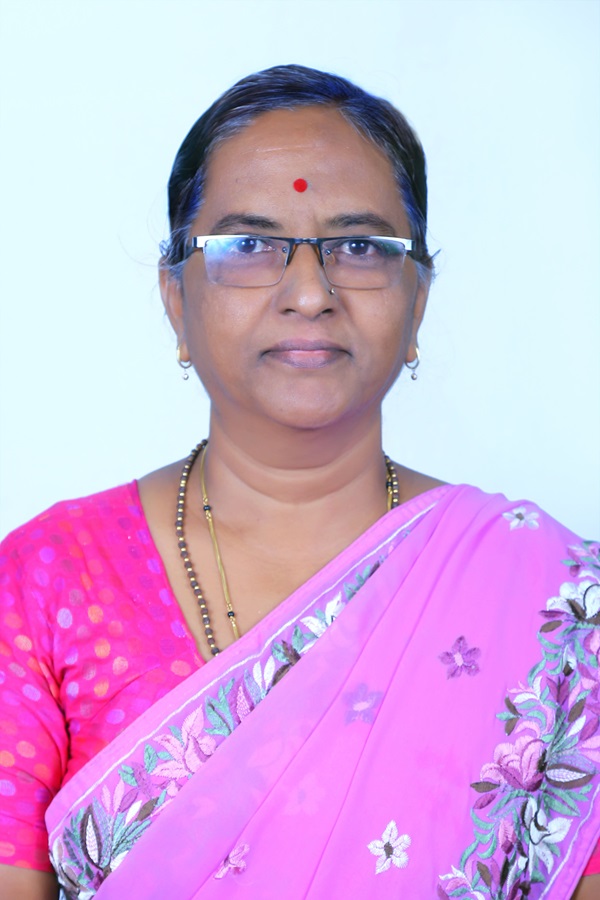 |
Name | Prof. KILLARIKAR S S Profile |
| Designation | Asso. Prof. | |
| Qualification | ME (EC) | |
| Teaching Experience | 33 Years | |
| Industry Experience | - | |
| Email Address | killarikarss@gmail.com | |
| Area of Specialization | Digital Design and VLSI |
| Name | Prof. Dr. SHETKAR Swati S Profile | |
| Designation | Asst. Prof. | |
| Qualification | M.TECH (EC), Ph.D | |
| Teaching Experience | 24 Years | |
| Industry Experience | 1 Year | |
| Email Address | swati.shetkar@gmail.com | |
| Area of Specialization | VLSI, Image Processing |
| Name | Prof. KHANAPURE R P Profile | |
| Designation | Asst. Prof. | |
| Qualification | M.E(EC) | |
| Teaching Experience | 12 Years | |
| Industry Experience | 2 Years | |
| Email Address | ravi.khanapure@gmail.com | |
| Area of Specialization | Communication Engineering |
 |
Name | Prof. Patil P V |
| Designation | Asst. Prof. | |
| Qualification | M.E(EC) | |
| Teaching Experience | 6 Years | |
| Industry Experience | - | |
| Email Address | vaishu9921@gmail.com | |
| Area of Specialization | Communication |
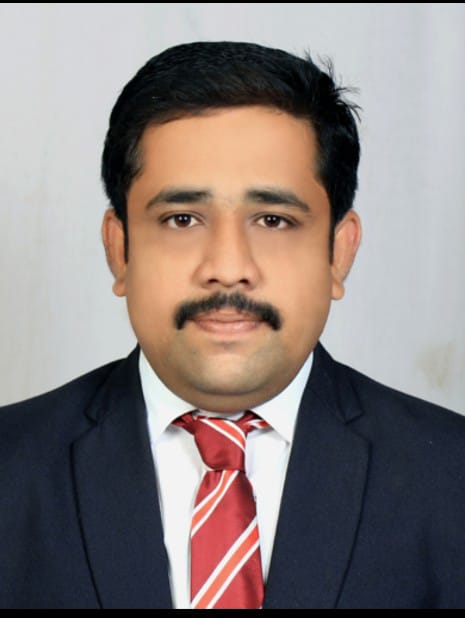 |
Name | Prof. Jadhav V N |
| Designation | Asst. Prof. | |
| Qualification | ME (Electronics) PGDBM | |
| Teaching Experience | 9 Years | |
| Industry Experience | 3 Years | |
| Email Address | vnj9594@gmail.com | |
| Area of Specialization | Digital, Network Theory |
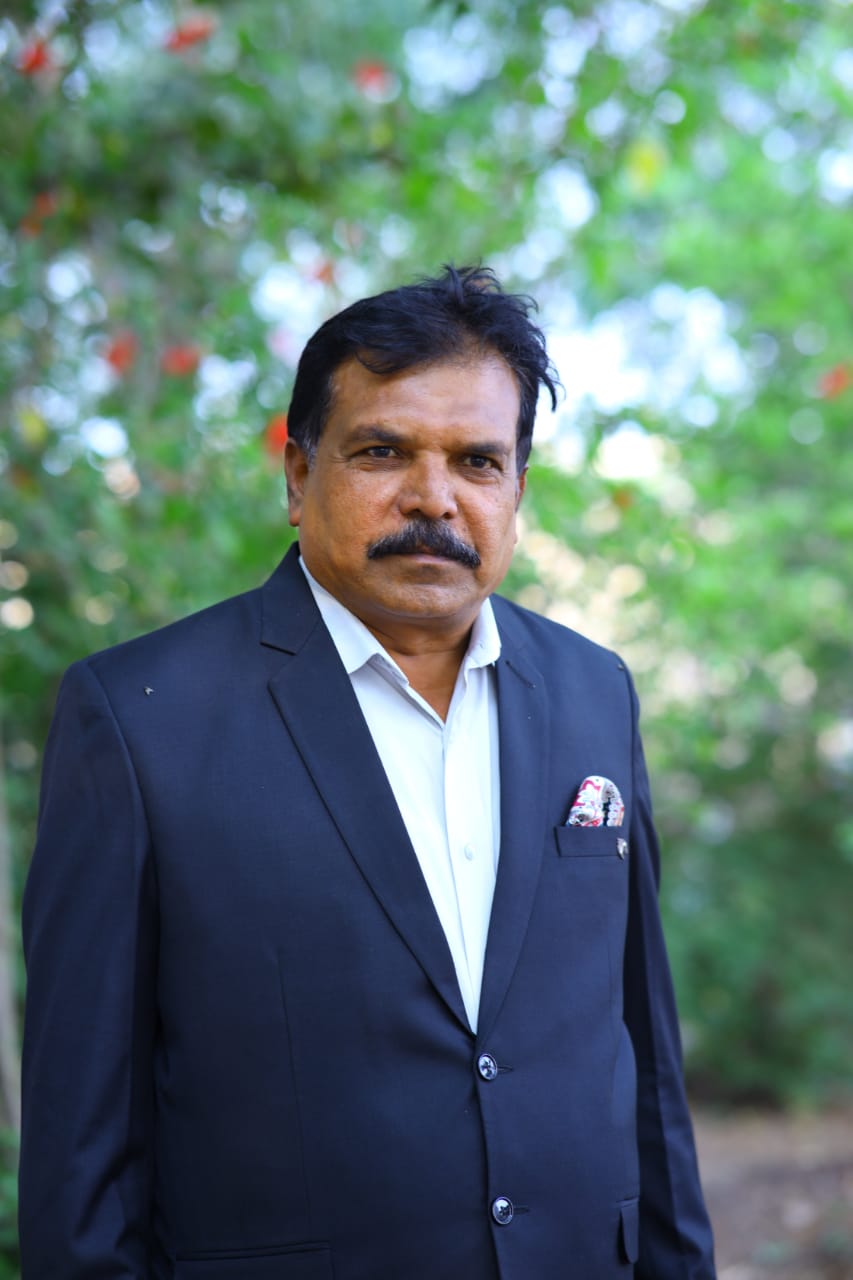 |
Name | Prof. Randale R B |
| Designation | Asst. Prof. | |
| Qualification | M.E(EC) | |
| Teaching Experience | 27 Years | |
| Industry Experience | 5 Years | |
| Email Address | ravindra.randale@gmail.com | |
| Area of Specialization | Computer, AJ/ML Cyber security |
Labortorary
LABORATORY DETAILS
Room No. 201
1. Electronics Department Library
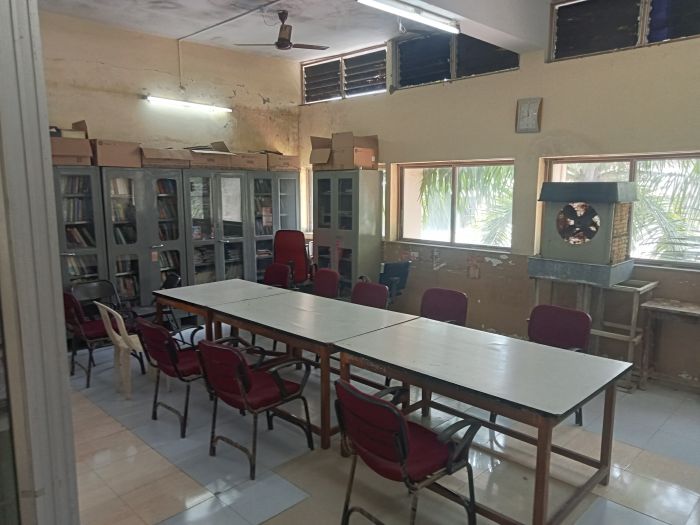
Area: 600sq.ft.
Library In- charge: Prof. V.N. Jadhav
2. VLSI & Embedded Lab
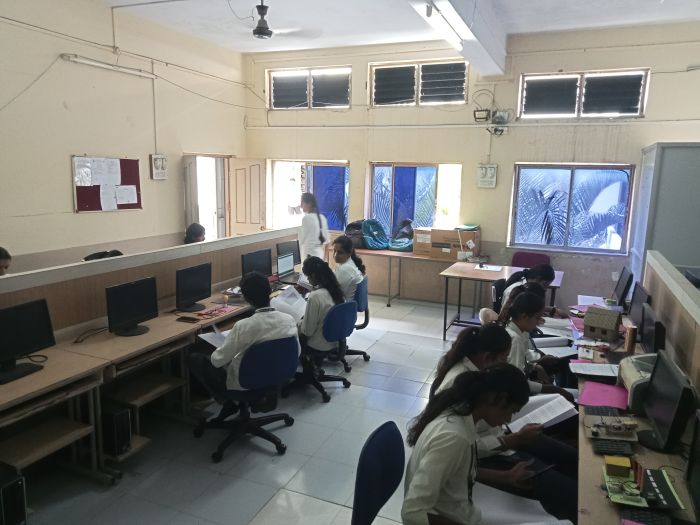
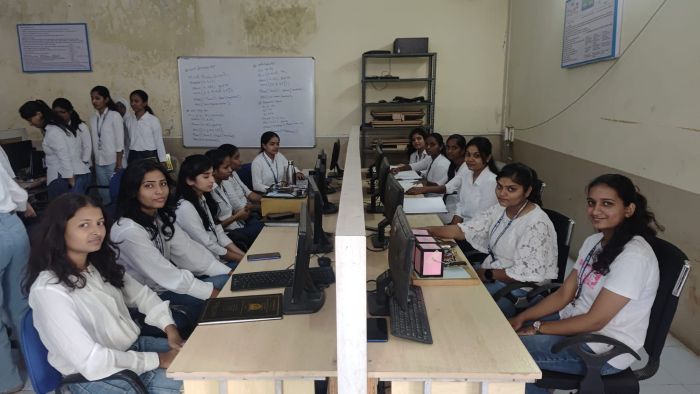
Room no. : 202
Area: 400 sq. ft.
Laboratory In-charge: Prof. Dr. S.S.Shetkar
Work Area (Specialization): Microcontroller Applications and VLSI Design.
List of equipment’s
| SN | NAME OF EQUIPMENT | QTY | AMOUNT |
| 1 | P/S unit for mp kit | ||
| 2 | 5 V P/S 1 Amp | 2 | 720.00 |
| 3 | P/S unit for 8085 5 v, 2 A | 4 | 1,440.00 |
| 4 | 12 V & 30 V 100 mA | 1 | 630.00 |
| 5 | SMPS P/S | 10 | 7,500.00 |
| 6 | SMPS-03 P/S | 10 | 10,625.00 |
| 7 | SMPS 01 for dyna 85 | 7 | 627.00 |
| 8 | 20,24,26,28,30 bread board | 8 | 1,600.00 |
| 9 | Long nose plier | 3 | 210.00 |
| 10 | Cutter | 3 | 120.00 |
| 11 | Z-80 mp kit | 1 | 2,500.00 |
| 12 | Microfriend Z trainer kit | 1 | 3,450.00 |
| 13 | ELC-85 mp kit with single cylce execution | 1 | 4,200.00 |
| 14 | MPS-8085 mp kit | 1 | 3,000.00 |
| 15 | 8085 mp kit | 1 | 3,450.00 |
| 16 | Microfriend 8085 ILCV2 | 1 | 6,750.00 |
| 17 | SDA-UNI-02-m basic universal mp kit 8085 | 4 | 21,100.00 |
| 18 | Educational trainer kit model ILC (WP) | 10 | 19,702.00 |
| 19 | Educational trainer kit model ILCV2A (WP) | 10 | 77,123.00 |
| 20 | Dyna-85 | 10 | 34,850.00 |
| 21 | Mp 8085 ILCV-2 | 10 | 78,960.00 |
| 22 | 8155-Trainer kit | 3 | 4,990.00 |
| 23 | 8259 -Trainer kit | 2 | 4,159.00 |
| 24 | Stepper motor (7kΩ20kg) | 3 | 3,000.00 |
| 25 | EMPROM Erazer DPS starter kit | 1 | 1,546.00 |
| 26 | 8086 mp trainer kit with 32KB EPROM & 32KB SRAM | 8 | 58,500.00 |
| 27 | Cable and connectors set | 9 | 3,960.00 |
| 28 | SMPS-03 switch mode power supply | 9 | 12,375.00 |
| 29 | Cable and connector set of SBC-51 | 9 | 4,050.00 |
| 30 | SMPS-03 : switch mode power supply | 7 | 9,625.00 |
| 31 | Cable and connector set | 7 | 6,930.00 |
| 32 | Dyna-PIO/2 : 8255 study card | 4 | 9,040.00 |
| 34 | Dyna-KBDISP : 8279 study card | 4 | 12,880.00 |
| 35 | ADC 0809 | 1 | 1,270.00 |
| 36 | DAC 0808 | 1 | 1,050.00 |
| NAME OF EQUIPMENT | QTY | AMOUNT | |
| 38 | 8051 microcontrollertrainer kit SBC-51 | 5 | 15,660.00 |
| 39 | SMPS-03 switch mode power supply | 5 | 3,987.00 |
| 40 | Dyna-DMA 8257/8237 DMA controller study card | 1 | 1,467.40 |
| 41 | Dyna Intr. 8259 study card | 1 | 1,467.40 |
| 42 | Dyna KB DISP 8279 study card | 2 | 3,735.20 |
| 43 | Dyna Serial 8251 study card | 2 | 2,935.00 |
| 44 | Study card 8279 | 1 | 1,800.00 |
| 45 | Study card 8251 | 1 | 1,800.00 |
| 46 | PCL-257 | 1 | 4,650.00 |
| 47 | PCL-223 | 1 | 5,575.00 |
| 48 | DSP Trainer | 1 | 11,890.00 |
| 49 | Stepper Motor[12V,40KgCm] | 1 | 7,500.00 |
| 50 | CPLD trainer kit | 3 | 36,000.00 |
| 51 | Universal trainer kit model MXUK-144-001 | 3 | 57,000.00 |
| 52 | Universal trainer kit model MXUK-240-001 | 1 | 22,000.00 |
| 53 | Xilink make VLSI Design S/W | 1 | 41,600.00 |
| 54 | Wipro Dual core/2.0 Ghz/512MB/80GB | 20 | 4,40,000.00 |
| 55 | Super oz-XELTEX (Universal programer) | 1 | 18,278.00 |
| 56 | Microwind3.5 Pack Matrix 11 Software | 1 | 3,00,000.00 |
| 57 | STK-2148 PIVS | 6 | 1,04,811.00 |
| 58 | SCARM | 1 | 18,938.00 |
| 59 | Study card-8253#1647 TO 1649 | 3 | 6,525.00 |
| 60 | PIO- ADC 08# TO 650 TO 654 | 5 | 8,000.00 |
| 61 | PIO-DAC 01# 3160 TO 3165 | 6 | 8,700.00 |
| 62 | LENOVO Desktop 510 S90-GB00E 3IN + Monitor |
10 | 3,25,000.00 |
| 63 | HP Desktop 280 G9 Core I5 12,500 6C 3.30Ghz | 10 | 5,03,390.00 |
| 64 | HP PRINTER 108a | 1 | 12,500.00 |
| 65 | MICRO-WIND 3.9 | 1 20 User |
3,45,150.00 |
| Total | 27,22,291.00 |
3. Signal Processing Lab
Room no. : 203
Area: 400 sq. ft.
Laboratory In-charge: Prof. V. S. Bale
Work Area (Specialization): Data Structures & Algorithm and Signal Processing.
List of equipment’s
| SN | NAME OF EQUIPMENT | QTY | AMOUNT |
| 1 | Computer system P-IV Desk top [Issued to Faculty] | 7 | 2,62,150.00 |
| 2 | CD writer LG/48X16X48X | 1 | 3,400.00 |
| 3 | Printer HP laserjet 1000 | 1 | 16,750.00 |
| 4 | Printer Epson LQ 1150 | 1 | 14,100.00 |
| 5 | Web camera LOGITECH OEM | 1 | 1,700.00 |
| 6 | Computer system server [Issued to Network Lab] | 1 | 2,44,550.00 |
| 7 | Windows XP professional CD | 20 | 60,000.00 |
| 8 | Computer system Intel P-IV 2.6 GHz | 15 | 5,76,525.00 |
| 9 | Computer system AMD Ethlon 1.67 GHz | 5 | 1,44,500.00 |
| 10 | DVD Writer 4x | 1 | 17,000.00 |
| 11 | DVD Drive 8 X | 1 | 3,900.00 |
| 12 | Printer Dot Matrix LQ 1150 24 pin, 136 col | 5 | 89,500.00 |
| 13 | Printer Laser HP 1010 | 1 | 13,600.00 |
| 14 | Scanner HP 2400 | 1 | 4,500.00 |
| 15 | LCD projector 1500 LV, Inocles system | 1 | 1,59,700.00 |
| 16 | LCD screen | 1 | 14,900.00 |
| 17 | Speeker stereo set | 2 | 1,200.00 |
| 18 | Windows XP professional CD | 20 | 1,78,500.00 |
| 19 | UPS [10 KVA Online] 2hr backup [Accession in N/W Lab] {N/W) | 1 | 4,89,920.00 |
| 20 | H.P.Laser 1020 Printer | 1 | 12,500.00 |
| 21 | DESKTOP-SI6AK43 12th Gen Intel® Core(TM) i5-12400 2.50GHz RAM 16 GB 64bit operting system,x64-based processor Edition Windows 11 Home |
20 | 10,02,000.00 |
| Total | 33,10,895.00 |
4. Analog, Digital & Advance Communication Lab
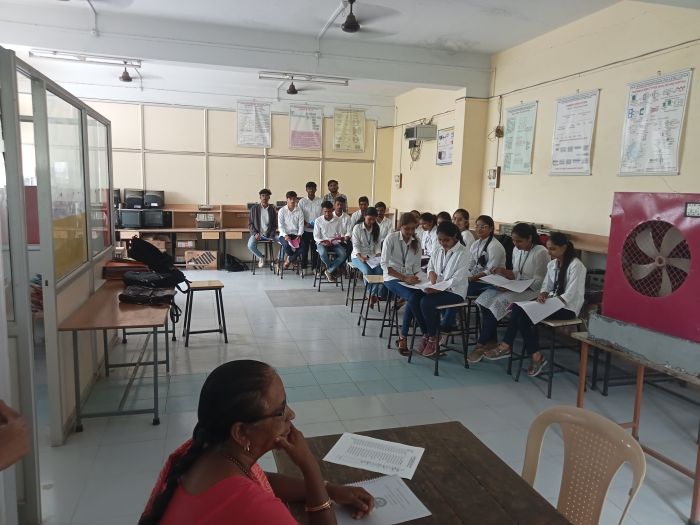
Room no. : 204
Area: 400 sq. ft.
Laboratory In-charge: Prof.V.P.Patil
Work Area (Specialization): Microwave Engg. and Fiber Optics Communication
List of equipment’s
| SN | NAME OF EQUIPMENT | QTY | RATE |
| 1 | C.R.O. | ||
| a. P.M. 3206 15MHz philips | 1 | 12,500.00 | |
| b. Oscilloscope model POS 2020 | 1 | 10,000.00 | |
| c. 20 MHz digital storage oscilloscope | 1 | 46,962.00 | |
| d. P.M. 3262 rise time philips | 1 | 60,000.00 | |
| e.P.M. 3213 20 MHz philips No.Bo. 4872 | 5 | 75,000.00 | |
| 2 | POWER SUPPLY | ||
| a. Regulated dual DC power su.LD 3202 | 5 | 45,765.00 | |
| b. IC regulated power supply 31/3 | 1 | 2,650.00 | |
| c. DC variable power supply 67/2 | 1 | 6,000.00 | |
| d. Regulated dual DC power su.(Aplab) | 2 | 17,300.00 | |
| 3 | FUNCTION GENERATOR | ||
| a. F.G counter 534/1 | 6 | 47,736.00 | |
| b. F.G. counter 500/1 | 2 | 12,230.00 | |
| c. 20/4 Freq.multiplier | 1 | 7,222.00 | |
| d. 2019 20 MHz pulse generator | 1 | 20,464.00 | |
| e. 807/DRF oscillator philips | 1 | 3,400.00 | |
| f. Pattern generator | 1 | 3,300.00 | |
| g. F.G counter | 4 | 37,440.00 | |
| 4 | DIGITAL MULTIMETER | ||
| a. 9202 D.M. 502/2 | 3 | 2,700.00 | |
| b. D.M.303 multimeter | 1 | 1,050.00 | |
| c. PP 9085 multimeter philips | 4 | 6,116.00 | |
| 5 | ANALOG MULTIMETER | ||
| a. Motwane multimeter | 2 | 8,250.00 | |
| b. Nung chand HC-20205 | 2 | 1,800.00 | |
| c. Nung chand HC-20205 | 1 | 950.00 | |
| 6 | ARIES INDUCTANCE BOX | ||
| a. Inductance box ME1010 | 7 | 8,400.00 | |
| b. Decade Inductance box | 4 | 4,800.00 | |
| 7 | PACAFIC CAPACITANCE BOX | ||
| a. Capacitance box MEC 100 | 5 | 8,400.00 | |
| b. Decade capacitance | 1 | 1,485.00 | |
| 8 | ARIES RESISTANCE BOX | ||
| a. Resistance box MER 010 | 5 | 3,500.00 | |
| b. Decade resistance | 1 | 1,100.00 | |
| 9 | OUTPUT POWER METER | ||
| Aplab impandance ohms o/p power meter | 2 | 6,130.00 | |
| 10 | AC milivoltmeter aplab | 2 | 5,034.00 |
| 11 | Wattmeter | 1 | 4,100.00 |
| 12 | Digital Phase meter | 1 | 3,000.00 |
| 13 | Analog phase meter | 1 | 3,000.00 |
| 14 | T.V. | ||
| a. Bush baron MTV/8100 | 1 | 4,160.00 | |
| b. Keerti T.V. B/W | 1 | 8,500.00 | |
| c. Keerti T.V. Colour | 1 | 17,000.00 | |
| 15 | BREAD BOARD | ||
| B.B. | 4 | 1,200.00 | |
| B.B. | 1 | 200.00 | |
| B.B. | 3 | 600.00 | |
| 16 | Amplifier ICA-60 60 watt | 1.00 | 2200.00 |
| 17 | Drive unit HOW | 1 | 295.00 |
| 18 | Horn | 1 | 115.00 |
| 19 | Elect. Push button telephone | 1 | 4,000.00 |
| 20 | Pulse code mod. | 1 | 3,500.00 |
| 21 | Pulse code demod | 1 | 3,500.00 |
| 22 | Amplitute mod. | 1 | 1,350.00 |
| 23 | Amplitute demod | 1 | 1,100.00 |
| 24 | Pulse amp. Mod. | 1 | 1,750.00 |
| 25 | Pulse amp. Demod. | 1 | 1,750.00 |
| 26 | Pulse width mod. | 1 | 1,750.00 |
| 27 | Pulse width demod. | 1 | 1,750.00 |
| 28 | Pulse position mod. | 1 | 2,500.00 |
| 29 | Pulse position demod | 1 | 2,500.00 |
| 30 | Delta mod. | 1 | 7,000.00 |
| 31 | Delta demod. | 1 | 7,700.00 |
| 32 | Microphone study | 1 | 8,500.00 |
| 33 | Loudspeaker study | 1 | 8,500.00 |
| 34 | Freq. Mod. | 1 | 1,350.00 |
| 35 | Freq. Demod. | 1 | 1,100.00 |
| 36 | B & W TV trainer | 1 | 10,500.00 |
| 37 | Digital freq. Counter | 1 | 6,087.00 |
| 38 | Digital freq. Counter | 1 | 6,900.00 |
| 39 | Wobboloscope 250 MHz microwave | 1 | 52,052.00 |
| 40 | Microwave bench | 1 | 60,060.00 |
| 41 | Acord EPBAX system 200 | 1 | 53,500.00 |
| 42 | Telephone | 26 | 14,950.00 |
| 43 | Siemen 8/5 Telephone | 1 | 1,945.00 |
| 44 | Operator control accord for 200 | 1 | 25,700.00 |
| 45 | Exide 12 V M + 5-40 battery | 1 | 5,400.00 |
| 46 | BPL 5499 telephone | 1 | 585.00 |
| 47 | Computerised PCO monitor | 1 | 11,000.00 |
| 48 | Radio Kit | 1 | 1,440.00 |
| 49 | BPL 6390 Tele inst. | 1 | 500.00 |
| 50 | Zee TV DTH | 1 | 3,990.00 |
| 51 | C.R.O.30MHz 2Channal (Dual trace) | 4 | 64,000.00 |
| 52 | D.S.O.100MHz 2-Channal Colour Osciioscope | 2 | 38,000.00 |
| 53 | Function Genrator 2 MHz Aplab F62MD | 4 | 31,160.00 |
| 54 | DMM model 603(meco) | 8 | 11,016.00 |
| 55 | Microwve klystron test bench | 1 | 67,275.00 |
| 56 | Microwave gunn based test bench | 1 | 73,192.00 |
| 57 | ST-2502 Fiber optical trainer kit | 2 | 47,920.00 |
| 58 | Laser Trainer | 2 | 32,800.00 |
| 59 | AM,MOD/D-MOD TRAINER | 1 | 4,632.00 |
| 60 | FM,MOD/D-MOD TRAINER | 1 | 4,632.00 |
| 61 | PAM,MOD/D-MOD TRAINER | 1 | 4,632.00 |
| 62 | PWM,MOD/D-MOD TRAINER | 1 | 4,632.00 |
| 63 | SAMPLING & RECONSTRUCTION | 1 | 7,237.00 |
| 64 | PSK,MOD/D-MOD TRAINER | 1 | 4,632.00 |
| 65 | ASK,MOD/D-MOD TRAINER | 1 | 5,597.00 |
| 66 | QPSK,MOD/D-MOD TRAINER | 1 | 9,457.00 |
| 67 | DPSK,MOD/D-MOD TRAINER | 1 | 5,597.00 |
| 68 | PCM,MOD/D-MOD TRAINER | 1 | 7,527.00 |
| 69 | DELTA ADAPTIVE MOD/D-MOD | 1 | 12,062.00 |
| 70 | Function Genrator Aplab 1 Mhz | 2 | 14,250.00 |
| 71 | Amitec make advanced anteena anaiyzer 0.04-4.3GHZ,Touch screen TFT Display clatest 4G Tecnology motorized rotation (Stepper control) plotting software model ATS04 Base |
1 | 2,30,100 |
| 72 | HP PRINTER 108a | 1 | 12,500.00 |
| 73 | DMM 803D | 5 | 1,250.80 |
| Total | 12,90,263.80 | ||
5. Power & Instrumentation Lab
Room no. : 205
Area: 400 sq. ft.
Laboratory In-charge: Prof. R. P. Khanapure
Work Area (Specialization): Power electronics, Instrumentation.
List of equipment’s
| SN | NAME OF EQUIPMENT | QTY | AMOUNT |
| 1 | Oscilloscope POS 20A | 1 | 5,140.00 |
| 2 | 20 MHz oscilloscope OS 300C | 2 | 17,163.00 |
| 3 | PM 3206 15 MHz | 2 | 13,000.00 |
| 4 | PM 3206 20 MHz | 4 | 60,000.00 |
| 5 | DC power supply 0-300 V | 3 | 45,864.00 |
| 6 | Regulated dual DC power supply LD 3202 | 5 | 45,765.00 |
| 7 | Ic resulated power supply | 1 | 2,640.00 |
| 8 | DC power pack 15 VA | 2 | 2,200.00 |
| 9 | 30 V 10 A battery DP 151 | 1 | 3,025.00 |
| 10 | Experimental bread board system | 8 | 1,00,000.00 |
| 11 | Function generator PO-18 | 2 | 6,364.00 |
| 12 | Function generator counter FC-200 | 4 | 24,480.00 |
| 13 | Low distortion signal generator freq. Multiplier | 2 | 7,222.00 |
| 14 | Step down chopper | 1 | 6,800.00 |
| 15 | Parellel inverter | 1 | 5,400.00 |
| 16 | DC potentiometer | 1 | 11,880.00 |
| 17 | Series inverter | 1 | 5,400.00 |
| 18 | Cyclo converter | 1 | 6,120.00 |
| 19 | DC flasher | 1 | 1,800.00 |
| 20 | 9202 digital multimeter | 2 | 1,800.00 |
| 21 | DT-850 digital multimeter | 2 | 6,000.00 |
| 22 | PP 9085 multimeter | 6 | 9,174.00 |
| 23 | SANWA-INDIA | 1 | 200.00 |
| 24 | Study of SCR & AC phase control 2m | 1 | 5,280.00 |
| 25 | Study of SCR & AC phase control 4m | 1 | 4,180.00 |
| 26 | SCR converter & reactive loads 5/6 m | 1 | 7,920.00 |
| 27 | Study of forced commutation of SCR 9 m | 1 | 5,280.00 |
| 28 | Universal motor control 12 m | 1 | 7,040.00 |
| 29 | Tullu FHP motor | 1 | 7,040.00 |
| 30 | ETIHYSET - 21m AC voltage controller | 1 | 9,400.00 |
| 31 | ET THYSET - 22 MR 3 ph HW & FW controlled rectifier | 1 | 12,800.00 |
| 32 | ET THYSET - 24 MR study of power MOSFET | 1 | 12,800.00 |
| 33 | ET BASEKIT basic training kit | 1 | 23,800.00 |
| 34 | DEVKIT development kit | 1 | 9,800.00 |
| 35 | Bread board | 8 | 2,300.00 |
| 36 | Variac | 2 | 1,850.00 |
| 37 | LN Plier | 3 | 36.00 |
| 38 | Cutter | 3 | 36.00 |
| 39 | CRO with power scope | 2 | 41,654.00 |
| 40 | Dual Converter | 1 | 22,500.00 |
| 41 | Cyclo converter | 1 | 22,500.00 |
| 42 | Digital IC tester | 1 | 29,500.00 |
| 43 | IC Tester | 1 | 13,500.00 |
| 44 | Logic Trainer PLT01 | 1 | 39,000.00 |
| 45 | C.R.O.30MHz 2Channal (Dual trace) | 4 | 64,000.00 |
| 46 | D.S.O.100MHz 2-Channal Colour Osciioscope | 2 | 38,000.00 |
| 47 | DMM model 603(meco) | 8 | 11,016.00 |
| 48 | Power supply dual traking PSD 1209107 | 4 | 27,588.00 |
| 49 | Digital IC tester | 1 | 14,957.00 |
| 50 | Function Genrator Aplab 1 Mhz | 2 | 14,250.00 |
| 51 | Rheostat 500 Ohm/2 Amp | 5 | 24,750.00 |
| 52 | Rheostat 100 Ohm/2 Amp | 3 | 4,275.00 |
| 53 | DMM UT33PLUS | 5 | 4,739.90 |
| Total | 8,69,228.90 |
6. Project Lab
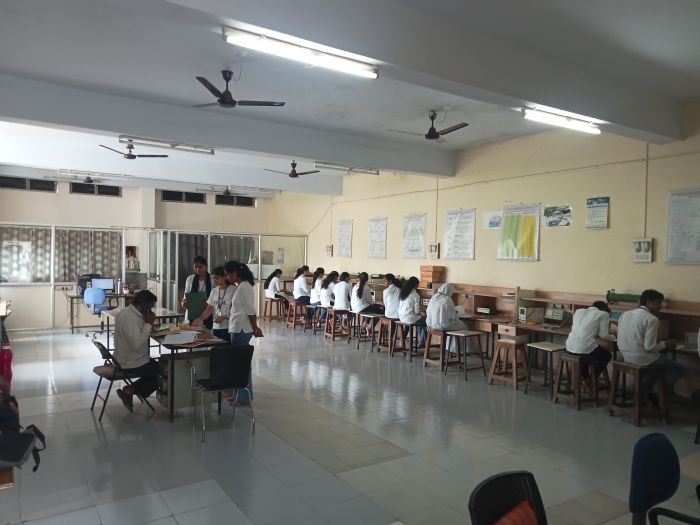
Room no. : 206
Area: 400 sq. ft.
Laboratory In-charge: Prof. S. S. Killarikar
Work Area (Specialization): Analog and digital circuit design.
List of equipment’s
| SN | NAME OF EQUIPMENT | QTY | AMOUNT |
| 1 | Oscilloscope pacific | 1 | 10,000.00 |
| 2 | Oscilloscope philips | 1 | 12,500.00 |
| 3 | Oscilloscope L & T | 1 | 17,163.00 |
| 4 | Oscilloscope philips | 1 | 15,000.00 |
| 5 | D.C.Position cont. sys | 1 | 11,000.00 |
| 6 | A.C.Position cont. sys | 1 | 11,000.00 |
| 7 | Dual power supply | 2 | 10,112.00 |
| 8 | T.C.reg power supply | 1 | 4,200.00 |
| 9 | Power supply DC comp motor | 1 | 3,200.00 |
| 10 | Dual power supply (LD) | 1 | 8,650.00 |
| 11 | I.C.reg power supply | 1 | 2,400.00 |
| 12 | D.C. vair power supply | 1 | 6,000.00 |
| 13 | Capacitance box | 4 | 5,400.00 |
| 14 | Resistance box | 4 | 4,400.00 |
| 15 | AC milivoltmeter | 1 | 2,717.00 |
| 16 | Output power meter | 1 | 3,065.00 |
| 17 | Analog multimeter | 1 | 230.00 |
| 18 | Digital multimeter | 4 | 5,000.00 |
| 19 | Tachometer | 2 | 5,200.00 |
| 20 | Tachometer | 1 | 1,850.00 |
| 21 | Digital temp. meter | 1 | 2,600.00 |
| 22 | PID controller | 1 | 10,000.00 |
| 23 | Voltage control relay | 1 | 2,730.00 |
| 24 | Speed generator Setup | 1 | 3,000.00 |
| 25 | Reding and meter | 1 | 5,180.00 |
| 26 | Tacho generator | 1 | 1,160.00 |
| 27 | Tran servo motor | 1 | 6,000.00 |
| 28 | Electric Actuator | 1 | 3,200.00 |
| 29 | Synchro. Motor Setup | 1 | 6,000.00 |
| 30 | Synchro. Tran. Receiver | 1 | 7,000.00 |
| 31 | Bread Board | 8 | 1,600.00 |
| 32 | Function Generator (LT) | 2 | 12,230.00 |
| 33 | Function Generator (philips) | 2 | 5,800.00 |
| 34 | DC motor,Sensor,Pots,Stop watch,Synchro transformer [Suit Case] | 1 | 10,500.00 |
| 35 | Synchro. Generator meter | 1 | 2,000.00 |
| 36 | Thermocouple set | 1 | 2,600.00 |
| 37 | L.V.D.T. sensor | 1 | 9,675.00 |
| 38 | Load cell | 2 | 2,400.00 |
| SN | NAME OF EQUIPMENT | QTY | AMOUNT |
| 39 | Displacement meter | 1 | 6,000.00 |
| 40 | Mounting plate | 1 | 1,000.00 |
| 41 | Load metertimeter | 1 | 6,000.00 |
| 42 | Pressure me |
Events
Activities carried out in EESA:
- Engineer Day
- Aptitude Test (Weekly)
- Group Discussion
- Debate Competition.
- Project Exicibution
- Poster Presentation
- Paper Presentation
- Model Making.
Achievements
- Shweta Katke Gold Medol in 2022 M. Tech. DBATU
- Romana Shaikh Gold Medol 2020 M.Tech DBATU
- Sonwane S. Gold Medol 2019 M.Tech DBATU
- Student Name : Revati Vijay Mali(S.Y(EC))
Project Name: Emo VR Balance : where tantra meets mantra.
-
- Participated in Avishkar 2024 & Dipex 2024
- Selected in District Level Project Competition at Puranmal Lahoti College Latur.
- Selected for State level competition in Maharashtra Innovation Challenge & Got 1 Lakh Rupees as seed funding with assistance from SPPU.
- Saleena Kuntoji (2021-2022) Batch student selected in more than one companies as
- TCS (3.36 LPA+40 K Incentives)
- Wipro (3.6 LPA), HEXAWARE (4 LPA), Capgemini (4 LPA), HCL (4.25 LPA) , Infosys (3.6 LPA) & RENAULT Nissan Tech (4.75 LPA)
Mahesh Chitte ( Batch 2020_2021)selected in Competitive Exam as Tahsildar
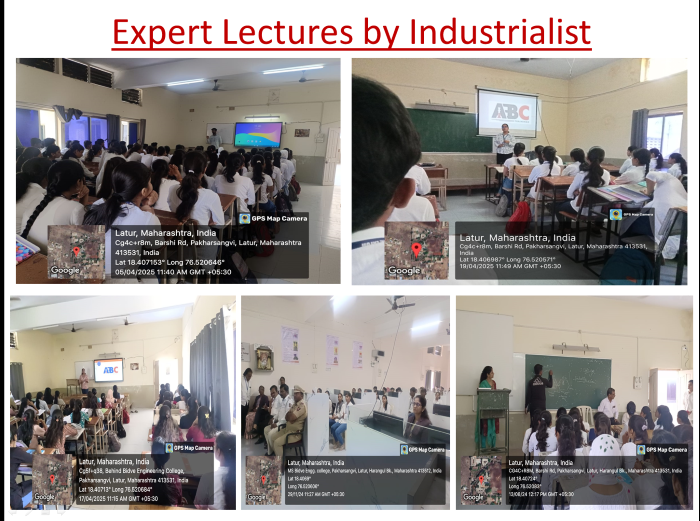
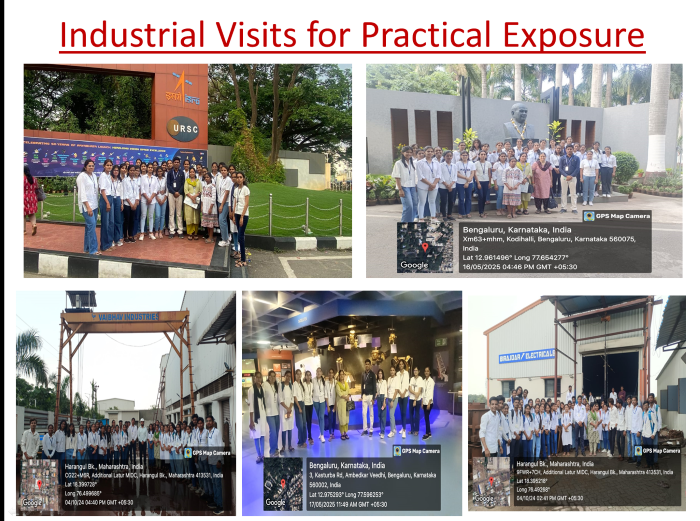
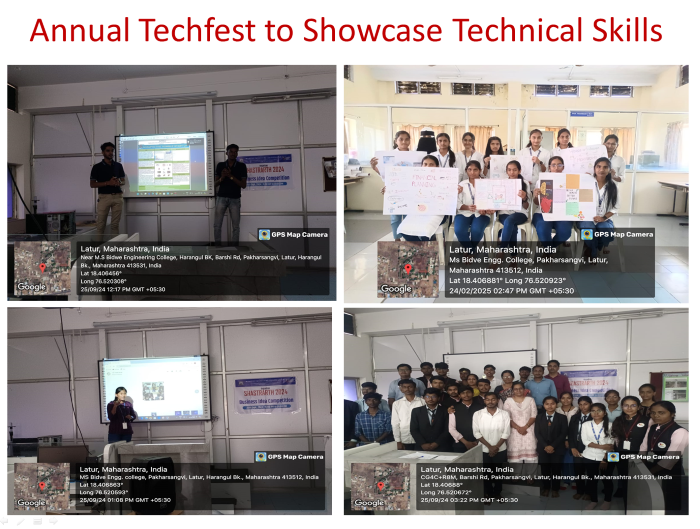
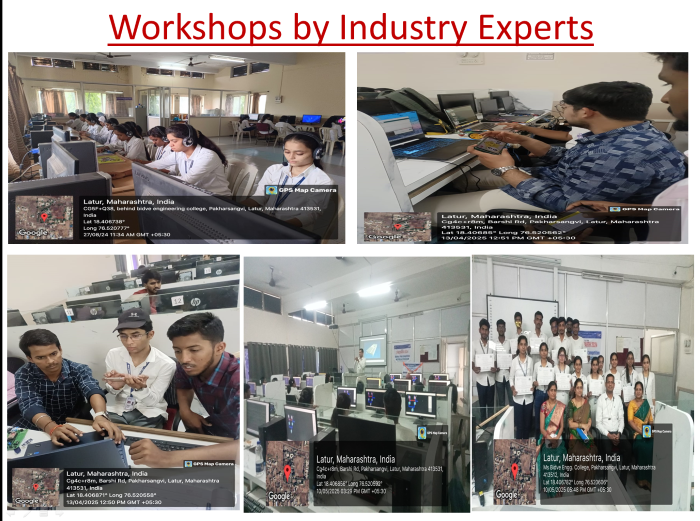
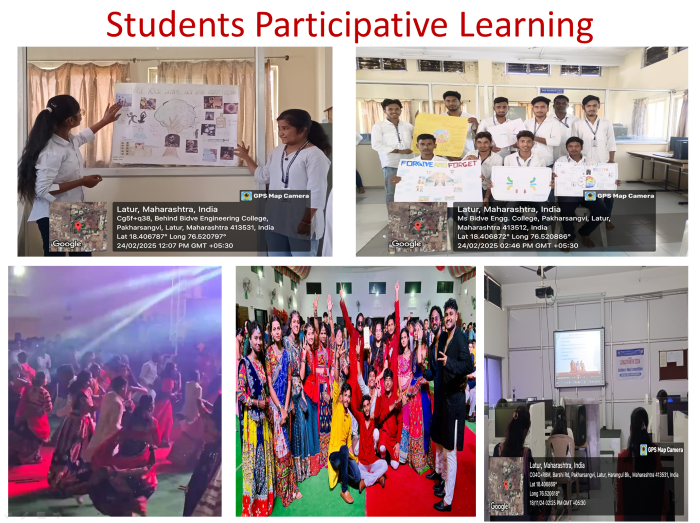
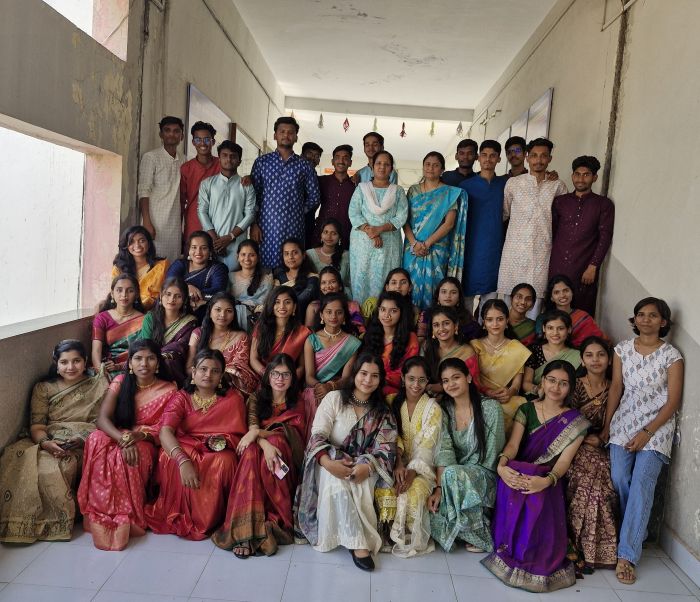
Student Corner
Technical Staff
Technical Staff
| |
Name | Mr.R.O.Sudke |
| Designation | Computer Programmer | |
| Qualification | M.Sc (Math.) | |
| Experience | 25 Years |
| |
Name | Mr.S.N.Patange |
| Designation | Lab. Asst. | |
| Qualification | Electro. Tech. Diploma | |
| Experience | 22 Years |
| Name | Mr.A.B.Bidve | |
| Designation | Lab. Asst. | |
| Qualification | ITI (NTC) | |
| Experience | 12 Years |
| Name | Mr.A.A.Kadam | |
| Designation | Lab. Asst. | |
| Qualification | Diploma in Elctronics& Tele. Comm. | |
| Experience | 10 Years |